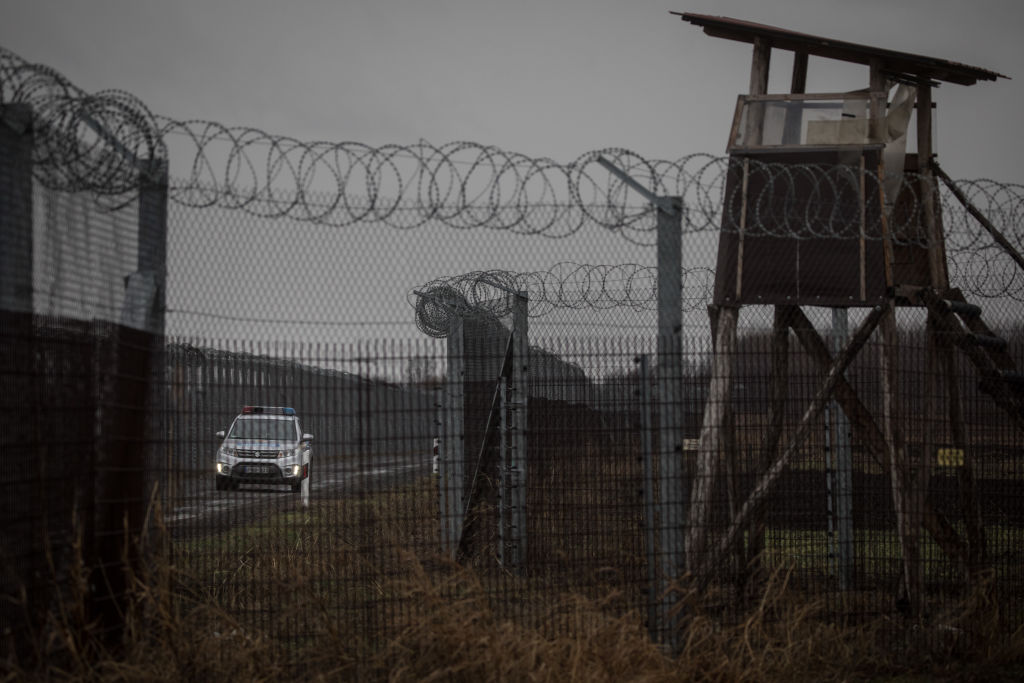There exists in Vienna a curious organisation, which, if you went by its title – The Economic and Corruption Prosecutor’s Office (WKStA, in the German acronym) – would seem an unabashedly good thing. Who does not like it when fraud and corruption are investigated? The problem is that the WKStA is not an an arbiter of justice. Instead, it is a tool the establishment uses to target and destroy its enemies without anyone being charged.
How do they do it? It is quite simple. Take the case of Herbert Kickl, the leader of the largest party in Austria, the populist-right Freedom Party (FPÖ). Earlier this year, Kickl was brought before a parliamentary committee where he was questioned for hours on various subjects. This is the oldest trick in the book, and is admittedly used by all sides. You get your opponent in front of cameras, have them take an oath, and ply them with a plethora of questions for hours on end. In that period of time they will of course say something false. They may misremember, misspeak, or misunderstand.
And here is where the WKStA comes in, because now the WKStA is requesting that Kickl be stripped of his immunity from prosecution – as he is a sitting member of parliament – so that they can investigate him for what they claim is an “initial suspicion of a criminal offense.” If they get approval – a majority of parliament needs to vote in the affirmative, Kickl, though leader of the largest party, does not have a majority, so this will likely pass – then the investigation can begin. But this investigation will take years, and over the course of it they will do everything they can to look at anything Kickl has ever written in order to destroy him. This is how the previous chancellor, populist-adjacent Sebastian Kurz (ÖVP), was forced from power: the WKStA investigated him for one thing after he had been brought in front of a committee for hours, found chats on an unrelated subject in the course of their investigation, and charged him.
It is important to remember that this sort of investigation does not often result in criminal charges: the actual effect is more insidious. Kurz’s finance minister, Gernot Blümel, was investigated for years. His apartment was raided and his things were seized. But over two years later? No charges. By that point, Blümel had been forced out of politics, his name in tatters. Because this is really the goal, and is why the major names who are targeted by the WKStA are often challengers to the system: the point is to destroy the people they target, the point is not justice.
Austria’s unelected prosecutors are not alone in being overzealous. French prosecutors just asked that populist-right leader Marine Le Pen be jailed and banned from running for office for over half a decade – conveniently, past the date of the 2027 French presidential elections – and even did so via a “provisional execution” request, which would mean that such a ban would be unappealable. Now, Le Pen did not kill anyone, nor did she betray the country. There is only one feasible reason why unelected prosecutors would ask her to be banned via an unappealable punishment: politics.
The song is the same in Italy, where judges and prosecutors have run contrary to democratic will. In one case, former interior minister (and current infrastructure minister) Matteo Salvini was charged with the crime of kidnapping because while he was interior minister he blocked a migrant NGO ship from docking. Prosecutors have asked for a six-year jail sentence. In another case, an email was leaked which disclosed that one judge lamented Italian Prime Minister Giorgia Meloni “has no judicial investigations against her and therefore she does not act for personal interests but for political visions and this makes her much stronger. And it also makes her action much more dangerous…”
And of course, the Biden administration attempted to use the judicial system to crush President-elect Donald Trump, with President Joe Biden himself reportedly angry that his Attorney General, Merrick Garland, did not move even faster to prosecute Trump so that he would have spent the election in a jail cell.
This practice is being repeated across the West for one reason: establishmentarians increasingly are losing control of legislative systems. When they are in charge of legislative chambers, they do not need to rely so heavily on the judicial system as a fallback. But when they start to lose control of those chambers, they pull their emergency brake: prosecutors and judges. This is why they can stomach losing an election to populists here and there but wretch at the thought of those populists putting in judges. This is why many of Donald Trump’s judicial picks had their legitimacy questioned and why the US Supreme Court, should Trump nominate a majority of justices (as he is likely to do in his second term), will fall under scepticism from Democrats.
It is also why Viktor Orbán has been portrayed by Brussels establishmentarians as taking over the Hungarian judicial establishment when he has simply just won multiple elections and as a result has been able to shape his country.
President Franklin D. Roosevelt ruled for just over 12 years, the longest presidential tenure in American history. In that time, he nominated every single member of the United States Supreme Court. Was he acting fiendishly in doing so, contrary to democracy? No, of course not. He won, so he got to put his people in. Now that populists are winning, they should get to do the same.
If the establishmentarians have not tried to arrest them all first, that is.





JD Vance says leave Musk X alone or the US might not support NATO